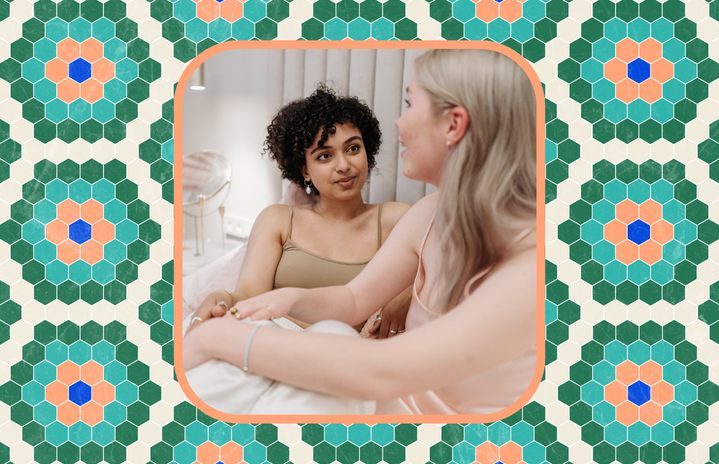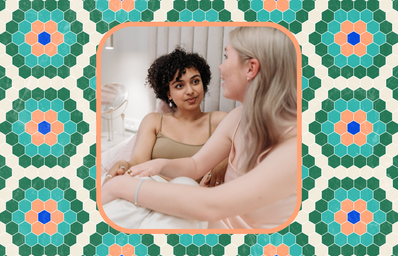I am currently a 19-year-old, second-year student in college. That means that I was born in 2004—post y2K—so by the time I was old enough to begin my pre-teen development, the academic world had already heard its fill of the word “like.”
I know this because by the time I was in late elementary school, when I was just beginning the process of discovering and enjoying girlhood, I was beginning to hear how my teachers couldn’t stand the word “like.” It was unnecessary, annoying and the adults who were leading me toward my future didn’t want to hear it. In the [regretful] era of “randomness,” where all children were slowly becoming internet literate, repeating random words to be funny, and learning to be sarcastic and ironic, somehow the valley girl accent and “like, totally” were among the worst of these evils to anyone who wasn’t a child or participant. I even recall a time I was at the home of a family friend, talking with my best friend and said “Oh. My. God!” (as a pre-teen girl does) when her father, from the kitchen, repeated the same thing in a high-pitched tone and added the word “like” on either end of the phrase. I was confused because that wasn’t what I said, and also because I wasn’t sure if it was meant to insult me or to make me laugh.
From then on, as I continued my secondary schooling it became my understanding that “Like…”, “Oh my God…” and “Literally…” were things I should not say unless I wished to be either subject to mockery from both my peers and the adults around me or perceived as annoying, shallow or dumb. It was both directly and indirectly communicated to me that using these terms and the tone implied with them—either to express myself or just as fillers—made me sound like a “valley girl,” or a Kardashian, implying that I, too, am vapid, brainless and would be perceived as inherently lesser than—all because of my choice of tone and filler words, regardless of what I was actually saying.
In what seems like a rational train of thought, the method of communicating information should not dictate the worth of its content if the content is not affected. The stereotype perpetuated by these vocal tendencies is a lack of intelligence and a vain attitude. However, like all stereotypes, this is neither productive nor true.
Sociolinguist Valerie M. Fridman argues that “like” in a context other than direct comparison has actually come to serve a linguistic purpose in conversation, specifically as an approximator. Fridman thoughtfully notes:
“So [like] tells you I’m estimating something, I’m giving imprecise information on purpose and that’s when we use it instead of about. So if I say he’s like 12-years-old, I could have said he’s about 12-years-old. It’s a one-to-one shift. No one is more meaningless than the other, but simply younger speakers prefer to do it with like and older speakers prefer about. So it’s really just a generational divide.”
Calling back to my aforementioned experience in childhood, where I was told by numerous teachers that they “didn’t want” to hear the word “like,” the subject of preference and its effect on the reception of information is interesting. Fridman explains how “like” as an approximator has no more or less meaning than its contextual substitute in her example, but is only a generational preference. So naturally, questions come to mind: What about the alternate use of “like” sounded so overly absurd that entire generations of women have a shared experience of mockery? Why do the preferences of one create less value for the words of another? Why are women continuously oppressed for speaking in ways that are unappealing to men even in today’s day and age?
Aside from “like,” the valley girl accent also falls under the category of a harmless yet mocked linguistic trait. The valley girl way of speaking is distinguished by one or all of many qualities, which include but are not limited to a nasal tone, upspeak (where sentences end in a higher tone as if a question were being asked, a.k.a. a high-rising intonation), and fast-paced or breathy speech. Although this accent is presumed to have been recognized sometime during the 1980s, it originated from Southern California and has since been perpetuated in TV and film as a parody of the “dumb blonde” or “airhead,” solidifying the legacy of the stereotype we’re familiar with today. It has proven to be one of the simplest ways to demean a woman and has even been identified as linguistic misogyny through the way that it has been “shown to undermine the success of women on the labor market.” To clarify, the speech itself does not come close to being harmful, but rather its reception and subsequent ridicule have strung an entire narrative that has set women back.
It is extremely important to note that men, the most common utilizers of mockery through overuse of like and the valley girl accent (although women who exhibit internalized misogyny are not exempt), have also integrated high inflections, or uptalk, into their own dialect. The traits that distinguish the valley girl accent from more conventional ways to speak are in fact not limited to femininity, and yet those who present themselves in a feminine way often reap the consequences, whether they use “like,” talk with inflections or sometimes just have a nasally voice.
In the year 2024, it is always jarring to witness any form of oppression when it seems that society has progressed so much further since the origins of modern oppression began. As an individual, it is unbelievably easy to judge others at face value and determine their worth at a glance, or rather at first listen. Doing this, specifically to women, is misogynistic, counterproductive to a well-integrated culture and just incorrect, as the tone and choice of filler words do not determine the value of anyone’s voice.


